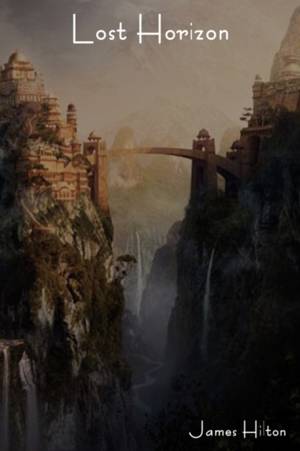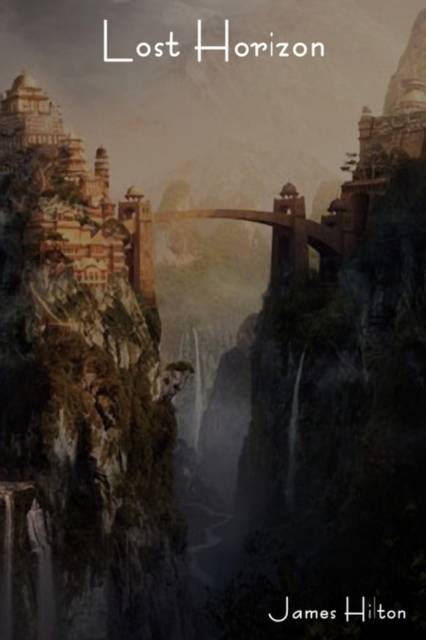
Wil je zeker zijn dat je cadeautjes op tijd onder de kerstboom liggen? Onze winkels ontvangen jou met open armen. Nu met extra openingsuren op zondag!
- Afhalen na 1 uur in een winkel met voorraad
- Gratis thuislevering in België vanaf € 30
- Ruim aanbod met 7 miljoen producten
Wil je zeker zijn dat je cadeautjes op tijd onder de kerstboom liggen? Onze winkels ontvangen jou met open armen. Nu met extra openingsuren op zondag!
- Afhalen na 1 uur in een winkel met voorraad
- Gratis thuislevering in België vanaf € 30
- Ruim aanbod met 7 miljoen producten
Zoeken
Omschrijving
Lost Horizon is a 1933 novel by English writer James Hilton. It is best remembered as the origin of Shangri-La, a fictional utopian lamasery high in the mountains of Tibet. Hugh Conway, a veteran member of the British diplomatic service, finds inner peace, love, and a sense of purpose in Shangri-La, whose inhabitants enjoy unheard-of longevity. Among the book's themes is an allusion to the possibility of another cataclysmic world war brewing, as indeed it was at the time. It is said to have been inspired at least in part by accounts of travels in Tibetan borderlands, published in the National Geographic by the explorer and botanist Joseph Rock. The remote communities he visited, such as Muli, show many similarities to the fictional Shangri-La. One such town, Zhongdian, has now officially renamed itself as Shangri La (Chinese: Xianggelila) because of its claim to be the inspiration for the novel. The book explicitly notes that having made war on the ground man would now fill the skies with death, and that all precious things were in danger of being lost, like the lost histories of Rome ("Lost books of Livy"). It was hoped that overlooked by the violent, Shangri-la would preserve them and reveal them later to a receptive world exhausted by war. That was the real purpose of the Lamasary; study, inner peace and long life were a side benefit to living there. Conway is a veteran of the trench warfare of WWI, with the emotional state frequently cited after that war--a sense of emotional exhaustion or accelerated emotional aging. This harmonizes with the existing residents of the lamasary and he is strongly attracted to life at Shangri-La.
Specificaties
Betrokkenen
- Auteur(s):
- Uitgeverij:
Inhoud
- Aantal bladzijden:
- 164
- Taal:
- Engels
Eigenschappen
- Productcode (EAN):
- 9781604443516
- Verschijningsdatum:
- 11/01/2011
- Uitvoering:
- Paperback
- Formaat:
- Trade paperback (VS)
- Afmetingen:
- 152 mm x 229 mm
- Gewicht:
- 249 g

Alleen bij Standaard Boekhandel
+ 26 punten op je klantenkaart van Standaard Boekhandel
Beoordelingen
We publiceren alleen reviews die voldoen aan de voorwaarden voor reviews. Bekijk onze voorwaarden voor reviews.











